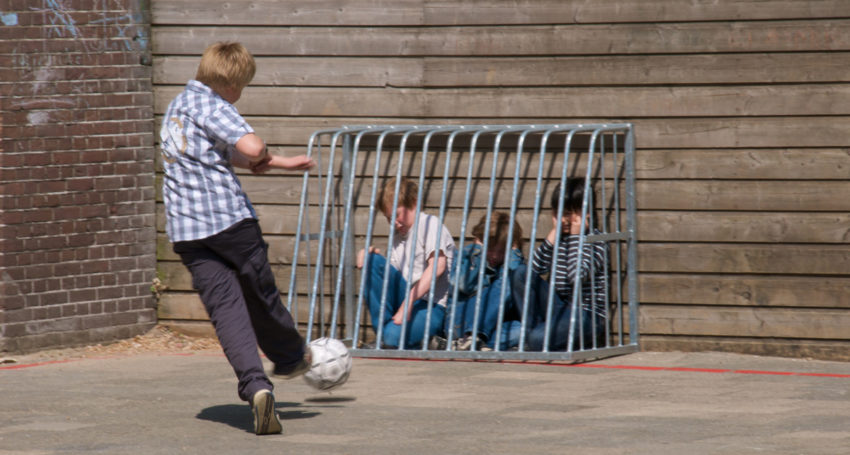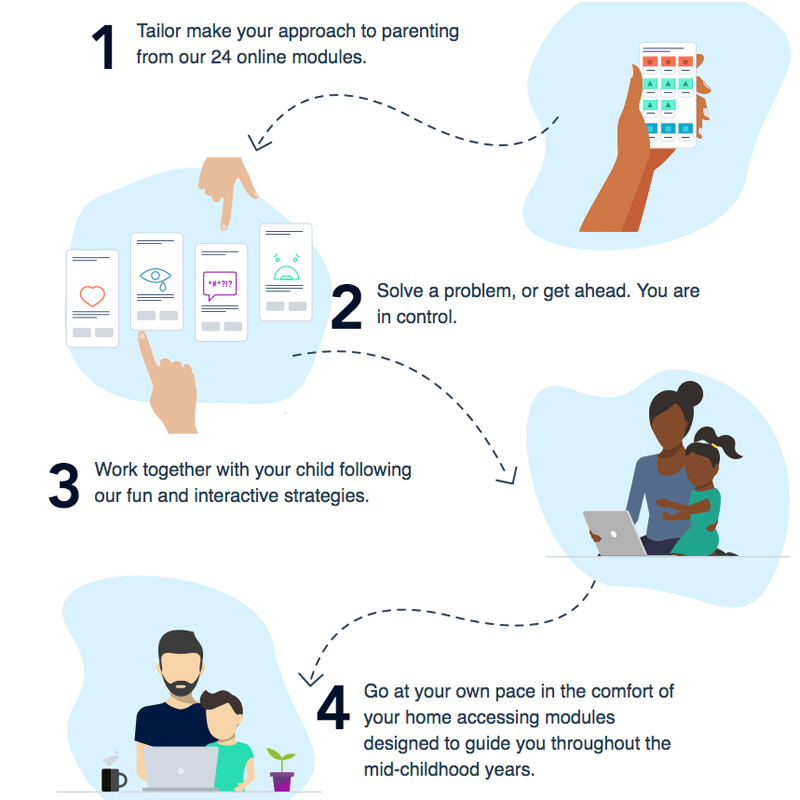Why parents need to teach kids to beat bullying
Education
Teaching young children the skills to disarm bullies is as important to their safety as teaching them how to cross the road, according to a leading family psychologist.

Sign up to receive notifications about new stories in this category.
Thank you for subscribing to story notifications.

Dr Don Tustin and his team of psychologists at Adelaide Psychological Services in Adelaide, South Australia, have developed a program to help parents build skills in their children to prevent them being bullied and ward off mental health conditions in adulthood.
The first of five online modules in the Bullying category of the program went live in the United Kingdom and Australia this month on the WeParent website. It follows the launch of the mobile-friendly site in March, which aims to be a ‘psychologist in the pocket of parents’. Other categories offered as part of the subscription-based service include Emotions, Friendships & Social Skills, Independence and Sibling Rivalry.
The first bullying module provides a step-by-step guide to what bullying is and why it is wrong, assertiveness skills and increasing a child’s positive sense of self.
Future bullying modules, to be rolled out progressively in coming months, include “How do I tell if my child is being bullied?” “What do I do if my child is being bullied?” “Reducing the long-term impacts of bullying”, and “What do I do if my child is the bully?”
A 2017 University of Melbourne study found 1 in 3 boys and one in four girls are bullied weekly, and those affected are on average 6 to 9 months behind in their school development due to the bullying.
Bullying is an equally big issue in the United Kingdom.
Dr Tustin said while governments had taken action in an attempt to reduce bullying, some of the most effective measures began in the home.
He said the skills taught to children between the ages of 4 and 8 could not only avert bullying in the short and medium terms but could also prevent the onset of mental health problems in later life.
“Most parents teach their children to cross the road safely – they don’t wait for a near accident – the same approach can and should be used with bullying,” Dr Tustin said.
“We’re strongly recommending that parents are proactive and not wait until a problem has emerged but to learn safety skills in advance.
“There’s certainly a proportion of people I see as adults who say they remember being bullied as a child or in their adolescence and have now got really entrenched anxiety and depression patterns.
“The techniques we’re teaching them really could have been taught to a six-year-old child.”

The recent Thriving at Work report commissioned by the British Government found that poor mental health was costing the UK economy between £74 and £99 billion a year. In Australia, a Deakin University study estimated the cost of high-prevalence mental health conditions to be $12.8 billion a year.
Dr Tustin said psychological research on bullying showed there were two main types of behaviours that made children targets for bullies.
“Children who are very unassertive and can’t speak up for themselves are more likely to be targeted by other children who are trying to overly assert themselves and be dominant,” he said.
“The second group is children who give very strong emotional reactions when they are teased and picked on – that seems to motivate some children to dominate those individuals.
“It’s equally important for parents to address if their child is showing signs of being a bully – the two things need to go together. Emphasising one and not the other is probably going to lead to a very unbalanced situation.”
Subscriptions to WeParent are £6 or A$10 a month for unlimited use.
Dr Tustin co-founded WeParent with his London-based son Nick Tustin and Nick’s partner Claire Biglands. Nick Tustin is heading up sales while Biglands’ role is content development.
Nick said the “prevention is better than cure” approach taken by WeParent meant families did not have to wait until a child was bullied before taking action.
“If there was something you could do as a parent to stop your child being bullied, wouldn’t you do it?” he said.
“You’re almost giving them a magic cape and when they’ve got their cape on they feel 10 foot tall, bulletproof and bully-proof.
“Bullies need power like fires need fuel so if a bully can’t get any power over another kid they can’t carry on.”
Biglands said the Preventing Bullying module was about improving a child’s self confidence, resilience and self esteem.
She said changes in parents’ behaviours in the home could have a big impact on children.
“Becoming assertive, for example, is a lot about modelling assertiveness for your kid because they’re learning from you, they are watching you and how you assert yourself or don’t,” Biglands said.
“If they’re not seeing an assertive parent then it is very unlikely that they will become assertive themselves.
“It’s far easier to imprint these things in a 4 to 8 year old’s brain than it is to tackle it when you are an adult. As adults we really grapple with our sense of self and whether we’re assertive or not and instilling that in a kid is far, far easier.”
One of WeParent’s goals is to work with the Heads Together initiative spearheaded by The Duke and Duchess of Cambridge and the Duke and Duchess of Sussex, which combines a campaign to tackle stigma and change the conversation on mental health with fundraising for a series of innovative new mental health services.
Jump to next article



